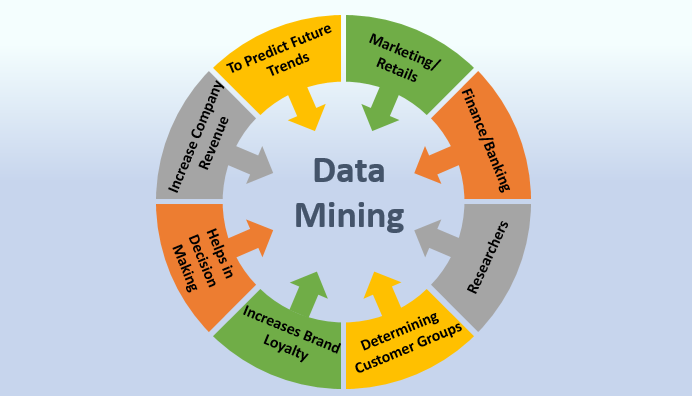5 Scalable Business Models Every Solopreneur Should Know
Running a business solo can feel limiting—there’s only so much time and only one of you. However, scaling a business as a solopreneur doesn’t have to mean long hours or hiring a team. With the right approach, you can grow your business efficiently, expanding your reach and increasing revenue without overextending yourself.
It’s about using innovative strategies to get more done with less effort, allowing your business to operate and grow without requiring constant attention. As James Cash Penney wisely stated, “Growth is never by mere chance. It’s the result of forces working together.” This underscores the importance of leveraging various strategies, tools, and systems to create a cohesive growth plan.
Ready to break free from the time-for-money trap? Here are five scalable business models that every solopreneur should know to grow smarter, not harder.
Digital Product Sales
Selling digital products is one of the simplest and most effective ways to scale as a solopreneur. The concept is straightforward: create a product once and sell it endlessly. Whether it’s an eBook, a set of downloadable templates, or specialized software, digital products offer an excellent way to generate passive income without continual input. You’re no longer trading time for money but instead leveraging your expertise to reach a larger audience.
The beauty of this model is that it requires very little ongoing maintenance. Once the product is ready, you can automate the sales and delivery process. This allows you to focus on marketing, customer service, or creating even more products to diversify your income streams.
Plus, with tools like Gumroad or Shopify, managing sales and distribution is easier than ever. Similarly, solopreneurs can look to services like CreditNinja, an online lending platform, for financial flexibility when scaling their business. Whether investing in new tools or covering operational costs, access to the right resources can help your digital product sales grow even faster.
Success in this space comes down to creating something people genuinely need. Solving a problem or fulfilling a desire in your niche will ensure your digital product sells well over time. Aim for quality, and always look for ways to improve or upgrade your offerings to keep your audience engaged.
Membership Sites
Membership sites offer solopreneurs an exceptional way to generate ongoing, recurring revenue. The idea is simple: provide valuable, exclusive content your audience will pay for regularly. This could be industry insights, coaching, tools, or tutorials—anything that consistently offers value. Once the infrastructure is set up, the model becomes a great way to generate passive income.
A significant advantage of this model is its ability to foster a dedicated community. People are more likely to remain loyal when they feel part of something exclusive and valuable. Your members will pay for continued access to content and the community, networking, and direct access to you as an expert. That ongoing interaction builds trust and deepens relationships, encouraging retention.
While membership models require an initial time investment to create high-quality content and manage the site, they become much easier to maintain over time. Automated payment processing and content delivery systems can handle the bulk of the work, freeing you up to focus on growing your audience.
Online Courses and Workshops
Another highly scalable business model is turning your knowledge into an online course or workshop. With the rise of e-learning platforms, the ability to teach many people at once has never been more accessible. Instead of dedicating hours to one-on-one coaching, you can package your expertise into a course that reaches hundreds or thousands of students. This approach not only increases your revenue but also frees up your time.
Offering courses also builds your authority within your industry. As more students complete your programs and see value, they will likely recommend it to others, amplifying your reach through word of mouth.
To ensure your course thrives, focus on creating high-quality content that’s engaging, actionable, and relevant. Interactive quizzes, forums, and live Q&A sessions can increase student retention and satisfaction.
Workshops can be an extension of this, providing live interaction while still benefiting from scalability. For instance, hosting a workshop through Zoom allows you to reach a broad audience with minimal logistics compared to an in-person event.
Licensing Intellectual Property
Licensing your intellectual property (IP) is one of the most underutilized yet highly scalable models for solopreneurs. You can license it to others if you’ve created something unique, like software, artwork, or written content. In exchange, you’ll receive licensing fees or royalties. This model allows you to expand your reach and profitability without being involved in the distribution or sale of the product itself.
For instance, software developers can license their tools to businesses, while artists might license their designs for commercial products. The scalability comes from the fact that once licensed, your IP can be used repeatedly across different markets or platforms. Each new licensing deal brings in revenue with minimal extra work on your part.
The potential for licensing is enormous, but it does require proper legal protection. Ensure you have the correct agreements to protect your rights and maximize the return on your creations. Once you establish a licensing system, the growth opportunities are practically endless.
Affiliate Marketing
Affiliate marketing is an ideal solution for solopreneurs with an engaged audience not interested in creating their products. This model allows you to promote products or services from other companies in exchange for a commission on sales through your referral links.
The scalability comes from the fact that you’re not responsible for creating or managing the product, making it a low-effort, high-reward opportunity. The key to succeeding in affiliate marketing is trust.
People will only buy your recommendations if they believe in your expertise and authenticity. Aligning with brands that match your values and resonate with your audience is crucial. That way, promoting something feels like a natural extension of your brand rather than a sales pitch. The best part? As your audience grows, so does your affiliate marketing revenue.
Final Thoughts
Scaling doesn’t mean doing everything yourself—it’s about working smarter, not harder. With the right strategies, you can expand your reach, increase revenue, and still have time for what matters most. So, pick the model that aligns with your goals, start small, and watch your business grow beyond what you thought possible.







